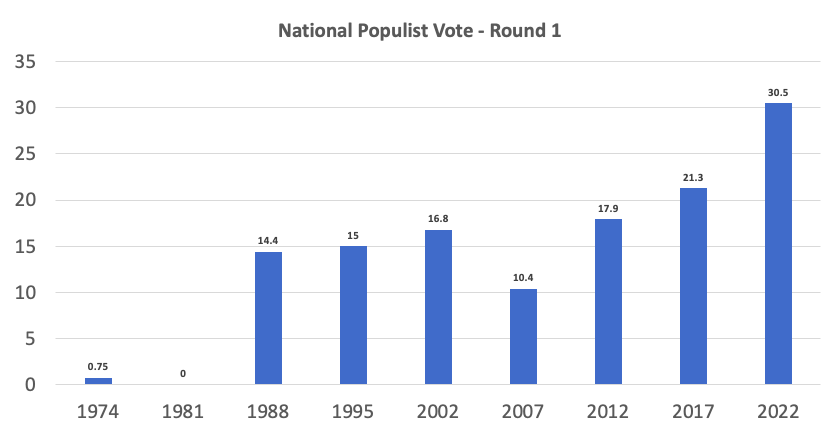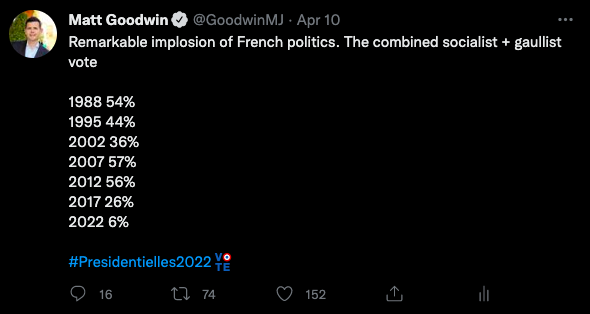Our guest dinner speaker on the 14th March at Les Noces de Jeannette in Paris was Nigel Evans, until last year Deputy Speaker of the House of Commons and MP for Ribble Valley in Lancashire.







CANZUK Parliamentary launch – March 2025
The CANZUK Parliamentary launch at the Houses of Parliament this evening was attended by Rafael Pittman, Conservatives Abroad (CA) Coordinator France & Benelux and Heather Harper Chairman CA.
https://www.conservativefriendsofcanzuk.uk/
The photographs taken include:
HH RFP Andrew Rossindell MP
HH RFP Lord Hannah
HH RFP CANZUK directors and supporters
Speeches were made by CANZUK directors Elliott Malik and David Moore and Jamie Bartch, vice-President and the their parliamentary host, Andrew Rosindell MP with the President, Lord Hannan of Kingsclere.




Congratulations to Mark Clayton winner of the 2023 AAT Excellence Award ( a fellow member of the accounting body Association of Accounting Technicians).
Mark is pictured with Raf Pittman (CA Representative France) for a traditional afternoon cream tea celebration of his AAT award, at the Farmers Club, Whitehall (London).
An entrepreneur, Mark is the Representative of Conservatives Abroad in China, Chief Financial Officer for the C2W Group and Vice-Chairman British Chamber of Commerce in Guangdong.
During his visit to the UK this past week he attended the South West Conservatives Forum and a Conservatives Abroad Team meeting with the Chairman Heather Harper, Deputies Colin Blackwell and Peter Michelmore, together with Representatives Robert McDowell (Channel Islands) and Raf Pittman (France).
Originally from Newcastle, Mark had a busy schedule but enjoyed his stay in London where he went on daily morning runs inspired by the history and architecture in and around Westminster.
france@conservativesabroad.org
Meeting of 10th December, 2022
Annotated Note on Exchanges with Guest Speaker Alexander Boot (AB)
Introduction by Evelyne Joslain (EJ)
EJ had arranged for AB to speak to BCiP at this meeting and introduced AB.
AB had been a lecturer at institutions in EN and US – as well as at a university in Moscow in the days of the SU.
AB has written a book on neo-conservatism.
EJ marvelled that she had at last found some one with views more conservative than her own!
AB Address
Why is Conservatism not Doing So Well?
AB posits that conservatism is engaged in a rear-guard action never able to effectively change the direction of travel.[1]
Definition of conservatism
The classic distinction between uppercase “C” (relating to the Conservative Party) and lowercase “C” (relating to conservative political, philosophical etc principles) – conservatism was recalled.
AB is lowercase – thus belonging to the “real conservatives” as he put it.
But one must ask: what does one want to conserve?
Politics before JC
AB argued that pre-JC eg in Ancient Greece politics was [for engaged citizens] all-encompassing, standing well ahead of family and private affairs in importance. Indeed family life could be reduced to that of a “breeding farm for the polis” – in his words.[2]
Politics after JC
Christianity “changed everything” – giving rise to new values and organisational principles in society.[3]
Thus arose a new “Western” model of society in which much more emphasis was placed on family, personal salvation, the private sphere more generally.
Political structures began to assume characteristics reminiscent of the family.[4]
According to AB a conservative would consider his personal beliefs to take priority over his political ones.[5]
Why Did Politics Become Dominant Again?
With the development of “modern man” and the disruption caused by the French Revolution society shifted again: the “organic” Christian ordering of society was replaced by the “modern state” – a sort of techno-structure far removed from concern for individual virtue, salvation and family – and bent on an ”efficient” ordering of society.
Cf the Evolution of the State in England
Because English political history represents such an extraordinarily lengthy continuum – extending back well beyond the arrival of the Normans – it is not really possible to pinpoint the time of coming into existence of an “English state”.[6]
Cf the Tendency of the Modern State to Become ever more “Absolute”
The modern state tends towards centralisation and to limit localism.
An interesting comparison is between Louis XIV and a French president or British PM today: the latter in many respects has more power (most of the time ie excluding extraordinary situations where no stable majority exists in parliament) and fewer constraints than the former.
Cf Development and Increasing Power of Supranational and/or Judicial or Quasi- or Pseudo-judicial[7] Bodies
The UE, the ECHR, the International Criminal Court etc extend the trend towards more centralisation of power at an ever-increasing distance from the citizen. This, among other things, has contributed to distrust among citizens of political structures including those of their own individual countries.
Problems of Centralisation
In addition to alienation of citizens comes the putting off of potential participants in the political process – given that the same has become less effective in dealing with real problems because of being constrained by so many supranational norms, media campaigns, pressures groups etc.
Further, the Christian foundations of Western societies have been ground down and gradually expelled.
Today a triumph of ideology has supplanted strong personally held convictions, according to AB.
The best conservatives can do is to retard the process.
Questions: What About Political Cycles, Pushback etc?
Several questions turned around the idea that AB was too pessimistic in abandoning all hope of a meaningful comeback of conservative principles and practice.
As to the marginalisation of Christianity it was pointed out that there have been quite a number of spectacular cycles which have seen Christianity fall into apparent terminal decline (eg in the 5th century, after the French Revolution, after Vatican II) only to make astonishing comebacks (cf Gregory the Great – pope in the late 6th Century; the development of monasticism in the high Middle Ages; the extraordinary dynamism of Catholicism in France (and elsewhere) in the 19th Century after the travails of the Revolution and under Napoleon and subsequently; the rejuvenation under Pope John Paul II).
Similar “returns to good fortune” can be found elsewhere eg the revival of Jewish spirituality in the latter 20th Century following a period in the 19th and 20th century when secularism in the Jewish community posed a challenge to the Jewish faith and even identity; the British monarchy has also known spectacular ups and downs over the last two centuries eg George IV was hugely unpopular -yet the monarchy flourished in the Victorian Age.
On the level of voting behaviour one can also see voter rejection of extreme and noxious political programmes (eg “defund the police” – now apparently abandoned by the Democratic Party the latter having been “mugged by reality” since the heyday of “BLM”).
[1] Cf questions section below.
[2] PT : social structures in Sparta in particular corresponded to this model.
[3] PT : change in fact was gradual eg it took literally several centuries for the Church to persuade the Frankish nobility to abandon polygamy – even after their nominal conversion.
[4] The reference seems to be to family-based dynasties and to the development of the nation as some sort of extension of the family (as argued by Hazony) (cf mediaeval notions of bonds of loyalty, service, protection knitting together different social/hierarchical groups – sometimes assuming quite an elaborate form as in the Holy Roman Empire). The Hobbesian or post French Revolution model of the Leviathan or Jacobine nation state citoyen – a counter-model discussed below – came later.
[5] This was not challenged during the Q&A session at the end of the meeting, but if one thinks of figures such as Winston Churchill, Charles de Gaulle, Otto von Bismarck, Lord Salisbury (late Victorian PM) etc one might consider this opposition to be rather abstact.
[6] AB seemed to be of the view that the English polity has preserved at least some of the traits and the modus operandi of an organic political organisation – something contributed to even today by the Common Law system of precedent, organic evolution driven by “realities on the ground” in society, trade etc. as well as by ancient overarching principles (cf Candian Supreme Court decision on the Reference on Quebec sovereignty recalling that fundamental principles in the Common Law reach back to basic beliefs about the ordering of English society developed many centuries previously and carried over through the Common Law to other Common Law countries).
[7] Inasmuch as some such bodies are or become highly politicised.
Had in 2015 some imaginative TV drama writer pitched to a network producer the idea of a new political drama called ‘The Party,’ with plot lines similar to those which real British politics has been following these last few years, they’d have been shown the door for it being too ridiculous.
Or, had the producer had the courage to give it a go, after the first few seasons of gripping drama along the Brexit lines, with viewing figures through the roof, this current season 7 would see viewing figures falling off a cliff. The public would be quite simply saying that the show had descended into an unbelievable farce.
The newly elected PM, Beth Druss’s tenure in the top role would have barely lasted two Sunday omnibus episodes. Now her predecessor Harris Jackson, the loveable rogue fired in disgrace at the end of the season 6 is plotting a surprise comeback: promising yet again to ‘get the job done!’
Only this time he needs to face down his old partner and now arch enemy, the sleek Dishi Punak, who is pitching his case as the only one competent enough to save the country from economic disaster, despite having been categorically rejected in the election one month earlier.
Like the falling imaginary viewing figures, it seems that the latest real life opinion polls have helped push the current Conservative Party into an absolute panicked frenzy; with an ever-aghast public looking on in amazement, bewilderment, and down-right disgust.
And as the real-life farce continues, it is starting to seem ever so plausible that by the end of this week the Conservative Party members will have had a new leader thrust upon them. This the man that they categorically rejected less than two months prior.
Leading up to this latest sensation, it was also feasible that the members would have had a choice being either former PM Boris Johnson and former Chancellor, and defeated leadership candidate from the last election, Rishi Sunak.
Neither Boris Johnson nor Rishi Sunak should replace Liz Truss as PM, plain and simple.
Firstly, Boris Johnson. The public at large no longer appreciate him. They see him as a two-faced liar. He’s misled parliament, received police fines for breaking his own lockdown rules and after a succession of further missteps and bad falls, was rightly booted out on his ears (although he technically resigned.)
How he could believe the public would so quickly forgive him for those errors is frankly beyond comprehension. It borders on delusion. He has no moral authority to govern. The Conservative Party is in the business of winning elections, and with Boris back in charge they simply would not.
Seemingly oblivious to this, if we are to believe what we read he nevertheless was able to gather the 100 nominations from MPs required to stand in the election. However, as the cold light of day dawned upon him he realised that keeping the fragile Conservative Party coalition together was impossible. Resignations and floor crossings were already being threatened should he return. So in these crazy political times that he would have found himself without a majority to govern with, even potentially not enough MPs wanting to be in government with him.
So we turn now to Rishi Sunak. For many, the man responsible for Boris Johnson’s downfall. How arrogant can one man be that he can believe that only he can be the one to unite the Conservative Party, unite the country and solve its problems when, only one month earlier, he lost against Liz Truss in the last leadership election? It’s incomprehensible.
Rishi lost for two reasons. Firstly, Liz Truss offered solutions to the current economic malaise that Rishi did not. Truss’ error was in going too far and much too fast. Rishi’s policies lack appeal. Plainly, the membership do not want him. He is a numbers man. And members fail to see a difference between him and Labour leader, Sir Keir Starmer.
After 13 years of Conservative rule, it would seem that we are on the cusp of austerity 2.0 in totally different economic circumstances, and there is no broad appeal for this across the country. So, plainly, if Rishi’s policies lack appeal with the Conservative Party members, they certainly would not wash with the broader public.
Secondly, seen as instrumental in Boris Johnson’s downfall, many Party members just won’t vote for him. ‘He who wields the knife can never wear the crown.’ Whilst a cliché, this acts as a guide to our instinct, relating to propriety and loyalty. Rishi is therefore forever tainted and should never become number one as a result.
Now having stood and lost too, he will forever lack legitimacy.
Regardless of this, it seems that Conservative MPs are now prepared to install their man despite the wishes of their membership; an act that looks bluntly like a coup. It shows total disregard and borderline contempt for the decision of the grass root members; those who pay their fees, canvass, deliver leaflets and give up their spare time helping get those MPs elected. It is, for many of them, the most anti-democratic action possible.
In what may seem a false equivalency, some members are drawing comparisons between this act and the parliamentarian shenanigans post the Brexit referendum. Others wonder how far the Party is prepared to go to ignore a democratic choice. This seems like an act of total self destruction.
What is a Conservative Party meant for if it can’t stand for the democratic principle, if it can’t believe in small state and low taxes, and if it can’t trust in its citizens?
As this blog is penned, there is still an outside chance that Penny Mordant can get to 100 nominations and force an election, but as the clock ticks and the seconds pass the odds are getting longer.
So as the probable anointment of Rishi Sunak approaches, with it comes the possibility of a Conservative Party wipe-out in the next election.
They don’t seem to have grasped that the public want more than balancing the books. They clearly haven’t been listening since 2016 and Brexit.
And whilst most conservatives believe in the natural order of things, that come the next election in 2024 the Conservatives would have been in power for 14 years and it would be time for a change – the British public deserve so much better than the current Labour Party offer.
This the Party whose Leader offered a second Brexit referendum after promising a renegotiation of the Withdrawal Agreement and promising to campaign against its own accord.
This the Party that would have had Britain join the European Medicine Agencies vaccination program, thus prolonging covid lockdowns.
This the Party that wanted to lockdown the UK for longer and more often than Boris Johnson’s governments, thus increasing public anguish and deepening public debt as a result.
This the Party that’s not able to distinguish between a man having a penis and a woman having a vagina.
This the Party whose leaders deemed it appropriate to kneel for Black Lives Matter, a political movement whose manifesto included defunding the police and ending the nuclear family.
This the Party that claims national pride yet has to print out the lyrics to the national anthem for it to be sung at their Party conference. Yet, this is the Party currently streets ahead of the Conservative Party in the opinion polls.
The Conservative Party should be ashamed of themselves. MPs would do well to consider all of this and do the wise thing – back someone else for leader than Rishi Sunak.
However, these are crazy times. I am not holding my breath.
Andrew Crawford
Secretary
British Conservatives in Paris (BCiP)
The Elections Bill has just received Royal Assent and so it has become the Elections Act 2022. Among other things it removes the 15-year rule for overseas voters, so we should soon all be able to register to vote in UK national elections.
It has been a very long haul, but now we have got there!
| Welcome to the politics memo of Matthew Goodwin, for busy people. Can Marine Le Pen win? It’s a question I’ve been asked a lot at recent events in Brussels, Westminster and the City of London. Here’s a piece I wrote for my friends at UnHerd with some additional analysis for subscribers. Whatever happens in the second round of the French election, Marine Le Pen can in some respects already claim victory. If the polls are correct, as they were in round one, then Le Pen looks set to win somewhere around 40-45% of the vote. While she will likely fail to win the presidency she will be able to saviour another prize: the knowledge that she has forever broken the mould of French politics.We can get a sense of the scale of what is unfolding in France by stepping back to look at the evolution of the national populist vote since 1974. The story is one of stubbornly persistent growth: 0.75% in the first round in 1974, 15% in 1995, 18% in 2012, over 21% in 2017, and, now, to over 23%. But even that is only a partial picture. Combine Le Pen’s vote with Eric Zemmour’s and Nicolas Dupont-Aignan’s and the picture is more dramatic. Together, earlier this month, they polled more than 32% — ten points more than what Marine Le Pen won five years ago and nearly double what she received a decade ago. Remarkably, they received a higher share of the vote than all of France’s Left-wing parties combined. This gives us good evidence to suggest that national populism is now fully consolidated on the landscape of French politics and may well be about to score further against at the legislative elections in June.  In the next round, on Sunday, Marine Le Pen is also forecast to surpass the 33% she won in 2017 by 13 points — more than double the 17% her father, Jean-Marie Le Pen, polled in the final round 20 years ago. Such is Le Pen’s progress that were she to replicate her father’s vote, which stunned the world, then it would be seen as a colossal failure.Nor is she anywhere near as toxic as he once was. According to one Ifop survey last week, almost half the French, 46%, said they trusted Le Pen to defend democratic values (versus 50% for Macron). Other surveys during this campaign have produced results that are just as striking, including one which found voters were more likely to see Le Pen, over Macron, as « sincere », « capable of changing the country », and « courageous » (though much larger numbers also saw her gains as « worrying »). The key point in all this is that many people simply no longer view the Le Pen brand as being as toxic as earlier generations did.None of this was supposed to happen. One fashionable narrative during the pandemic was that Covid-19 would kill off populism as people flocked back to the old parties, the technocrats, and the experts. Take a report by the Bennett Institute for Public Policy at the University of Cambridge, which concluded that support for populism had “collapsed” since the Covid outbreak, due to a “technocratic shift” in global politics. “Electoral support for populist parties,” wrote the lead author, Dr Roberto Foa, “has collapsed around the world in a way we don’t see for more mainstream politicians. There is strong evidence that the pandemic has severely blunted the rise of populism.”But the elections in France, and elsewhere, point in the opposite direction. In the first round, two-thirds of the French just voted for anti-establishment candidates outside of the incumbent president and the two mainstream Gaullist and socialist traditions which have dominated post-war France. Combined, support for the French Gaullists and the socialists collapsed from 54% in the late Eighties to just 6% today. Over the last half century, the French socialists — once the pre-eminent Left-wing party in Europe — have fallen from over 40% to just 1.7%. They are, in short, almost extinct. It is Marine Le Pen, not the Socialists, who can claim with a straight face to be the main working-class party in French politics. In the second round polls, while middle-class professionals break for Macron over Le Pen by a ratio of 63% to 37%, workers break for Le Pen over Macron by a ratio of 66% to 34%. .  Nor, for that matter, do other populists appear to be struggling. As Roger Eatwell and I argued in our book, National Populism, while the rise of these parties has raised worrying and important questions about the future of liberal democracy, they have also now become a permanent feature on the political landscape. In Germany last year, for instance, the Alternative for Germany’s share of the national vote fell by just 2 points to 10%, leaving it with 83 seats in the Bundestag (something that would have been considered unthinkable only a decade ago). In the Netherlands, while support for Geert Wilders fell slightly, support for Thierry Baudet’s Forum for Democracy increased, putting them both on 16% — an increase on their result four years earlier. In Norway, the Progress Party fell nearly four points to 12% but further south, in Portugal, the new Chega! (Enough!) Movement just entered parliament for the first time with 7% of the vote and their first twelve seats. In the Czech Republic, Andrej Babiš recently lost 2 points but still polled 27% while, last month, in Spain’s Castile and León region, the Vox movement won its best ever result with 17.6%. Then, last month in Hungary, Viktor Orbán’s Fidesz were comfortably re-elected with over 54% of the national vote.Further afield, too, 2022 looks set to reaffirm the existence of national populism, not push it into retreat. In November, at the US midterms, Trumpian Republicanism looks set to have a strong return. Joe Biden’s approval rating is now just 35% – lower than the approval rating for every other president at the same point in the cycle, with only one exception: Donald Trump. Today, nearly two-thirds of all voters say America is “on the wrong track” while the first polls for the 2024 presidential election put Trump four-points clear of Biden.Of course, there are examples of populists falling off the rails, such as Bolsonaro in Brazil, who is routinely trailing the Left in the polls. But when seen as a whole, and especially in Europe, the idea of populism being on the ropes is wishful thinking.The notion that Covid would kill off populism isn’t the only narrative Le Pen has overturned. Contrary to the idea, fashionable among liberal progressives, that populist voters would die out, Le Pen’s vote points to a new populist wave in Europe. In the first round of the presidential election, she polled ahead of Macron among everybody under 60 years old. The only people who flocked to Macron’s liberal centrism were the over-60s.Look at the polls for the second round, too, and much of Le Pen’s support comes not from nostalgic pensioners who yearn to return to the Fifties but younger voters, especially young women. Typically aged 18-34 years old, they work in skilled, semi-skilled, or unskilled jobs in the new working class — in sales and services — where they have found themselves on the wrong side of globalisation, automation, immigration, and a new cost of living crisis.Ever since the Nineties, the Le Pen dynasty has been most popular among blue-collar male workers. But more recently it has appealed far more to socially secure workers on lower-middle incomes who are squeezed between liberal professionals and the unemployed. They are the voters, in other words, who are especially likely to feel they have something to lose, whether from downward social mobility, rising immigration, neglectful elites, or rampant globalisation, much like the skilled and semi-skilled workers who abandoned the Labour Party for Boris Johnson.Ask Le Pen’s voters to name their top concerns and they are certainly more likely than the average voter to flag their intense worries over immigration, security, and, further down the list, the need to control Islamist terrorism. But their top concern, by far, has little to do with cultural issues: it is their declining “purchasing power”. They are not only united by the sense they are losing out socially, being pushed further down the social ladder behind the new graduate elite, immigrants and minorities — they cannot even afford to tread water and stay where they are.  Amid spiralling inflation and energy costs, Le Pen is appealing to French people who were typically born between 1988 and 2004, who have no memory of her father’s toxic campaigns, who have grown up in a world where populism is entirely normal, not an aberration, whose young lives were defined first by the global financial crisis and then by the Covid lockdowns, and who have never known a thriving, secure, growing French economy with low rates of unemployment. Why would they trust the old politics?Many have spent their adolescence amid high youth unemployment rates of at least 20%, low rates of economic growth and, on top of that, some of the worst Islamist atrocities in Europe. Le Pen has deliberately tried to woo these voters in a way her father never could. Look at her policies and you will find the expected call for a national referendum on “uncontrolled immigration”, a rather vague pledge to « eradicate » Islamist ideology and its networks from French territory, to toughen up sentences for criminals and reinstate border controls and weaken France’s relationship with the EU and NATO.But you will also find calls to slash VAT, raise wages, renationalise motorways, and a range of measures for younger people — monthly training vouchers for apprentices, the removal of all workers under 30 years old from income tax, the removal of corporation tax for entrepreneurs under 30, the building of 100,000 new accommodation units for students, and 0% loans for young families to try and stop them moving abroad and to encourage them to have more children.This effort to connect with a new generation of French voters is clearly working. Already, ten years ago, in 2012, the French political scientist Nonna Mayer observed how Marine Le Pen had successfully closed the male-heavy “gender gap” which had characterised not just her father’s vote but support for other populists across Europe. Unlike her father, a former paratrooper who had shown little genuine interest in “de-demonising” his party and was, at times, anti-Semitic, Marine Le Pen made serious inroads not only among women but also LGBT communities who often perceive their hard-won rights are under threat from Islamism.It is this generation of voters, she hopes, who will continue to push her forward, irrespective of what happens next Sunday, and perhaps in the form of some kind of broader populist alliance at the legislative elections in June. Le Pen may not capture the Élysée Palace this time — but the question, increasingly, is when, not if.  Thanks to those who invited me along to speak at various events in recent weeks. It is good to see the event space getting busy again after a dismal two years. Contact Matt Goodwin’s Memo is sent fortnightly to 7,800 analysts, decision-makers, leaders & citizens. Feel free to share. Feel free to subscribe . Copyright © 2021 Matt Goodwin’s Memo. All rights reserved. |
Monday, March 21, 2022
For decades, the Kremlin has accused NATO of encircling, threatening,
oppressing Russia… accusing the West of exactly what Putin is doing to his neighbors, who are not his vassals but countries liberated from centuries of Russian yoke.
BCiP member Evelyne Joslain comments on the Russian invasion of 2022.
https://www.dropbox.com/s/7jfeis2d41nnyg6/As%20Ukraine%20is%20dying_
By Michael Carberry
Michael Carberry is a British citizen and a long term resident in the south of France.
https://www.only-connect.co.uk/post/northern-ireland-and-the-toxic-legacy-of-brexit
Paul Thomson, BCiP President, has prepared his summary below of the talk given by our guest speaker Hervé Rigolot of the Mouvement conservateur in France, at our « getting together again » dinner event on the 17th November, 2021 after a long, virus-induced absence.
Retrouvailles chez Les Noces de Jeannette à Paris, le 17 novembre 2021
Conférence de l’invité d’honneur M. Hervé RIGOLOT
du Mouvement conservateur (« MC. »)[1]
Après un long hiatus dû aux perturbations Covid British Conservatives in Paris (« BCiP ») a tenu une soirée fort chaleureuse et éclairante sous le charme d’un endroit féerique, à proximité de l’Opéra-Comique dans le 2° arrondissement de Paris, où nous nous sommes (enfin) retrouvés, à savoir le restaurant Les Noces de Jeannette.
Après quelques mots de M. Raf PITTMAN, de la part de Conservatives Abroad, Jeremy STUBBS, le charismatique Président et animateur en chef de BCiP, a introduit M. RIGOLOT (« HR »), en vantant les qualités d’intelligence et de hauteur de vue de notre invité : en effet, nous n’allions pas être déçus.
L’objet de son intervention : la présentation de MC. ; et quelques réflexions « trans-manchiennes » sur les liens, et différences, entre les versions de conservatisme rencontrées respectivement des deux côtés de ce cour d’eau bien connu pour sa tendance à isoler le Continent.
Conservatisme manquant en France. Contrairement au monde anglo-saxon ou à l’Allemagne, selon HR la France serait dépourvue d’un conservatisme politique (et pensé) bien établi sur l’échiquier politique et dans le monde des idées politique. HR attribue cet état de fait aux divisions remontant aux séquelles immédiates de la Révolution française, et jamais durablement dépassées depuis : avec d’une part une tendance légitimiste, royaliste et à la recherche d’une restauration ; d’autre part une tendance dite souvent « bonapartiste » – plus autoritaire et axée sur la personne du « grand leader », mélangeant éléments conservateurs et modernistes ; et enfin une mouvance libérale (souvent associée au régime de Louis-Philippe (1830-1848) – avec la devise célèbre de M. GUIZOT : « Enrichissez-vous »). Ces trois courants répugnent le plus souvent à faire cause commune, chacun se refermant dans un « splendide isolement » malheureusement assez stérile. Un conservatisme constructif à la manière d’Edmond Burke, de Benjamin Disraeli voire d’Otto von Bismarck peine à prendre forme ou, s’il pointe le nez un moment (cf. le gaullisme originel) à se consolider.
Conservatisme enraciné dans le monde anglo-saxon. En revanche, dans le monde anglo-saxon il en va autrement : le conservatisme est une force politique et dans le monde des idées à la fois enracinée et dynamique – capable d’accompagner voire orienter (pour le bien du pays) les mouvements de la société voire de la science, de l’industrie du commerce etc. HR fait référence à différentes figures – allant de George Orwell (avec sa notion de « common decency ») jusqu’à Roger Scruton, qui souligna l’importance de la culture et de la beauté dans la création et le maintien d’une société humainement accomplie – après avoir rappelé la différence fondamentale entre la « Glorious Revolution » de 1688, qui visa la remise en selle et la sauvegarde de droits et vertus très anciens dans la vie de la polis anglais ; par opposition à la Révolution française qui se faisait fort de repartir d’une feuille blanche (la fameuse « tabulas rasa ») avec pour corollaire la destruction tout simplement de l’existant.
Un pont entre continuité, respect de la personne humaine et réformes au profit des moins favorisés : la doctrine sociale de l’Eglise. L’encyclique Rerum Novarum de Léon XIII[2] dirigea résolument la sollicitude de l’Eglise vers la question sociale – le drame de la pauvreté, du déracinement, de l’ensauvagement même– de larges couches de la population suite au mouvements d’industrialisation, de développement des villes et d’un prolétariat urbain, tout au long du 19° s. Cette doctrine, développée amplement par la suite, permit l’émergence d’idées de réforme plongeant leurs racines dans le bon vieux sol chrétien de l’Europe. Une réconciliation entre défenseurs d’un ordre ancien et pourfendeurs de réformes humainement nécessaire devient possible.
MC. : de la protestation ciblée à l’ambition politique large. HR nous a raconté les débuts de MC. Remontant à l’époque de la contestation du projet de loi en France autorisant le mariage homosexuel.
Même si ce combat a été perdu, la mobilisation assez massive et déterminé des opposants au projet a permis de prendre conscience justement de l’existence au sein de la société française d’une partie de celle-ci qui osait proclamer son désaccord avec des changement « sociétaux » jugés nocifs, voire constituant une véritable régression.
Un groupe appelé Sens commun a été bientôt établi qui visait à organiser ces voix et à leur permettre d’intervenir dans les débats et les joutes politico-idéologiques.
Toutes sortes d’attaques en bonne et due forme ne pouvaient manquer de surgir pour essayer de tuer dans l’œuf une telle dissidence. Mais Sens commun a poursuivi son chemin, même après la déconvenue vécue avec le torpillage médiatique/judiciaire de la candidature à la présidence de la République de François Fillon.
Depuis lors MC. a été créée, dans la prolongation de Sens commun, mais avec une ambition plus générale : donner forme à une pensée conservatrice à la fois enracinée et réformatrice (en vue d’une véritable amélioration des conditions de vie et d’épanouissement des citoyens – et de la société toute entière) – et porter cette pensée dans l’arène politique.
Mélanger religion et politique ? Parmi les questions posées à la suite de la conférence : ne convient-il pas, notamment en France, d’éviter de rattacher un mouvement politique (car c’est bien ainsi que MC. semble se considérer désormais) à une religion, quelle qu’elle soit ?
HR clarifia qu’il chercha simplement à nous expliquer que des idées ou inspirations portées dans la sphère politique pouvait provenir d’idées chrétiennes. Il n’a jamais prétendu que MC. puisât ses inspirations exclusivement à des sources chrétiennes. Il en convint sans hésitation– et c’est une évidence ! – qu’il ne s’agit pas de prôner un régime politique confessionnel voire clérical !
Une pénurie d’offre dans la vie politique française. Un autre membre de l’assistance interrogea HR sur sa compréhension du phénomène alarmant de l’abstentionnisme. Pour y répondre notre invité a rappelé – pour le déplorer – les obstacles institutionnels qui se sont établies, renforcées et accumulés ayant pour conséquence d’entraver l’action des responsables politiques de la France.[3]
Du coup le champs des possibles se rétrécit. En caricaturant : l’offre politique se réduit à des nuances toutes plus ou moins conformistes d’une doxa que l’on ne saurait remettre en question ; et les électeurs se demandent pourquoi se fatiguer à aller voter – puisque sur les grandes questions c’est Bruxelles, Luxembourg, Francfort ou Strasbourg qui décident – en se moquant d’ailleurs assez franchement des velléités de rébellion des légions de non-initiés, non-éclairés et non-admis (dans le cercle des décideurs).
Cette évolution bien réelle est préoccupante au plus haut point : ce sont les fondements mêmes de la démocratie libérale et de la souveraineté des états qui sont ainsi de plus en plus compromis.
Le temps politique : un horizon de trente ans ? Clairement rejetant tout déterminisme dans le monde politique comme celui des idées, HR nous explique que d’une part il ne faut pas s’attendre à réaliser des changements majeurs dans le logiciel politique d’une pays ou d’une société du jour au lendemain – un horizon de trente ans devrait plutôt être envisagé pour bien ajuster une stratégie à faire évoluer les choses dans le temps.
Ce qui ne vaut nullement licence à traîner, s’endormir ou partir s’installer sur la plage – en attendant paresseusement que cela se passe et se fasse.
Au contraire : sans une volonté pérenne d’agir et d’aboutir, l’Histoire risque fort de nous laisser sur le bord du chemin.
PT
[1] www.mouvementconservateur.fr
[2] De 1891
[3] Le même phénomène se retrouve au R.U/ et dans d‘autres pays occidentaux. Le gouvernement de Boris Johnson essaie d’y fixer quelques limites (par ex. en ce qui concerne les tendances interventionnistes des tribunaux – cf. la décision du tribunal de dernière instance en Angleterre rongeant les privilèges de l’exécutif par exemple en matière de prorogation du Parlement).





